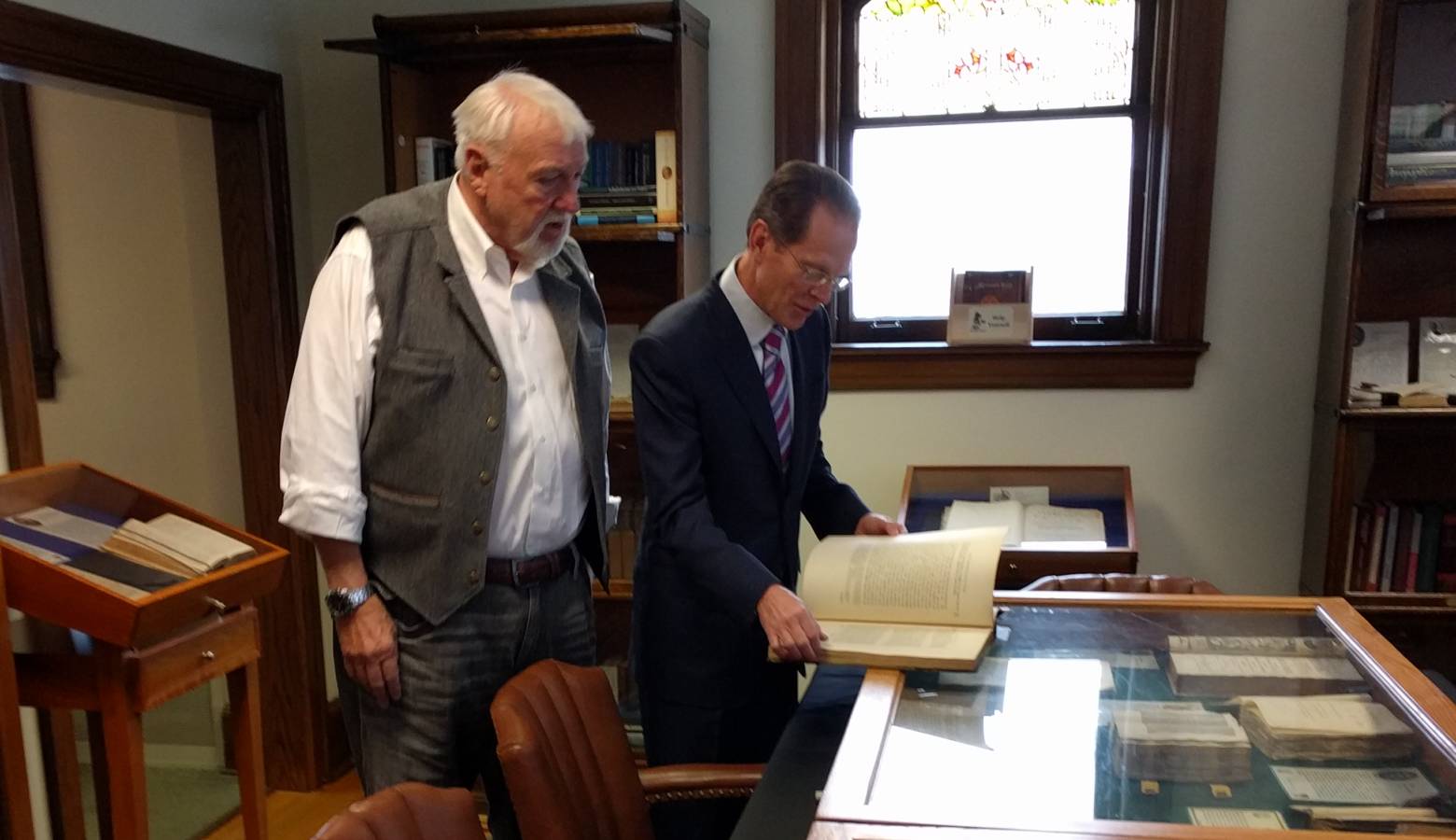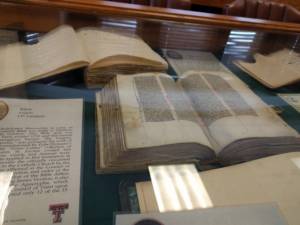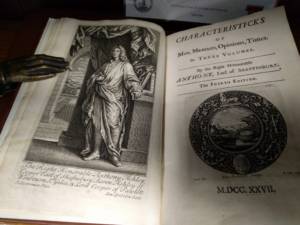Traveling Book Collection At Ball State Begs To Be Touched

A traveling collection of rare books from a trust in Texas is wintering at Ball State University in Muncie this year. Some of the editions are hundreds of years old, but aren’t being housed in a library vault. As IPR’s Stephanie Wiechmann reports, the collection is meant to be touched and read with bare hands.
Ball State President Geoffrey Mearns is paging through a first edition of Blackstone’s Magna Carta from 1759. He isn’t wearing white gloves.
“I’ve had the opportunity to go behind the scenes, so to speak, at the Library of Congress. They put those documents on the table, and they were handled by professionals with white gloves, and we were allowed to look at them. So this is a pretty special opportunity to actually be able to pick up a book.”
The book is part of a collection from Texas’s Remnant Trust that is meant to be a hands-on learning experience. People like Mearns are encouraged to touch and read the books.
“We take those entities,” says Remnant Trust founder Brian Bex, “that have been locked up in vaults, hidden in private collections, available, literally, only to the super rich and the privileged few, and we think we should share them with people. Great ideas belong to everybody.”

This 13th century Bible sits under glass while it waits for someone to pick it up and read it. (Photo: Stephanie Wiechmann)
Remnant’s founder, Brian Bex, is a tall man with a deep voice and a commanding presence. He says the trust wants to share the great ideas “from the history of man” in an accessible way.
“We have been trained inaccurately, I might add. If you have a 600-year-old manuscript on vellum, continuous exposure to natural sunlight can hurt it. But there’s nothing but scholarly argument as to what the definition of ‘continuous’ means. Is this two months? Ten months? Eight hours a day? Etc.”
“We just think that you should be able to do with yours what you want to do,” he says. “Now, we’d like some professionalism. Don’t be eating Cheetos or milk and Oreos before you pick up the works. But we need to discuss these ideas. We don’t discuss them anymore.”
Much of the more than 50-piece collection visiting Ball State is economic, political, and philosophical texts. Adam Smith. David Hume. John Locke. Plato. Seneca. Aristotle. Galileo. The Federalist Papers. The first book edition of the Articles of Confederation.
But there’s also editions of books by George Orwell, Mary Shelley, Jonathon Swift, and Ayn Rand.
There’s a hand-scribed copy of the Latin translation of the Bible, called the Vulgate, from the 13th century.
While the books are in Muncie, economic students will use the texts to study the Scottish Enlightenment. Talks will be given to highlight the works. But E.B. Ball Center’s Director Katheryn Kennison also wants the local community to come in and see the books.
“We are not an open library, so we can’t say ‘Just come in.’ But call and set up a time to view it and touch it. You know, if you finished studying at a university, that is just – you’ve just barely tipped your toe into all that is possible to know. We hope we’ll get a lot of people.”
The collection will remain at the E.B. Ball Center through the spring semester.

